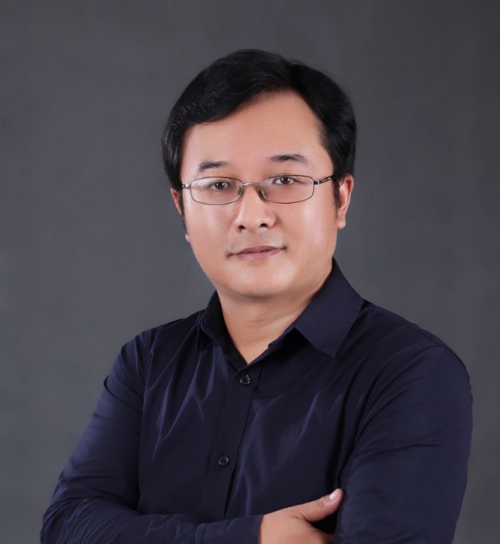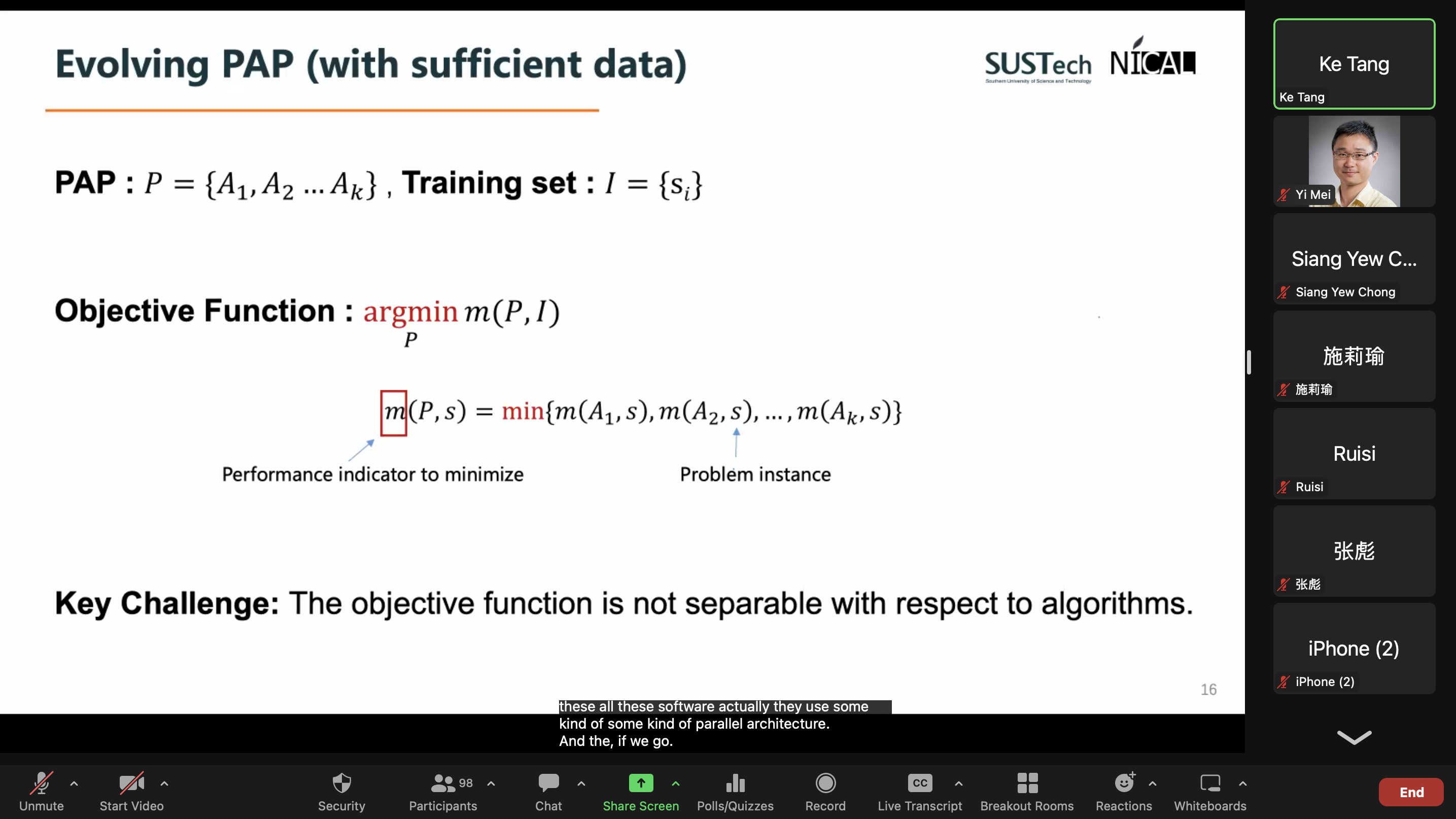

Speaker: Ke Tang, Professor, Department of Computer Science and Engineering, Southern University of Science and Technology, China
Date: 3 September 2022
Time: 2:00 - 3:00pm (China Time, UTC+8)

Ke Tang is a Professor at the Department of Computer Science and Engineering, Southern University of Science and Technology (SUSTech). Before joining SUSTech in January 2018, he was a Professor at the School of Computer Science and Technology, University of Science and Technology of China (USTC). His major research interests include evolutionary computation and machine learning, as well as their applications. He has published more than 180 papers, which have received over 10000 Google Scholar citations. He is a recipient of the IEEE Computational Intelligence Society Outstanding Early Career Award, the Newton Advanced Fellowship (Royal Society) and the Changjiang Professorship (MOE of China). He is an Associate Editor of the IEEE Transactions on Evolutionary Computation and served as a member of Editorial Boards for a few other journals.
Generalization is a property desired for all Artificial Intelligence systems. In the past decades, generalization has played a central role in machine learning research, but less touched in other areas. This talk starts by linking the research on generalization to a broader algorithm design context, i.e., the design of optimization algorithms. Then, a co-evolutionary approach for automatically constructing solvers with good generalization ability is introduced. Finally, results with a special algorithm class, i.e., Parallel Algorithm Portfolios (PAP), will be reported to demonstrate the potential of evolutionary computation for designing generalizable solvers for long-standing classical hard optimization problems, such as SAT, TSP and VRP.
The Webinar went very successful, with ~100 participants.

Back to the Webinar Series